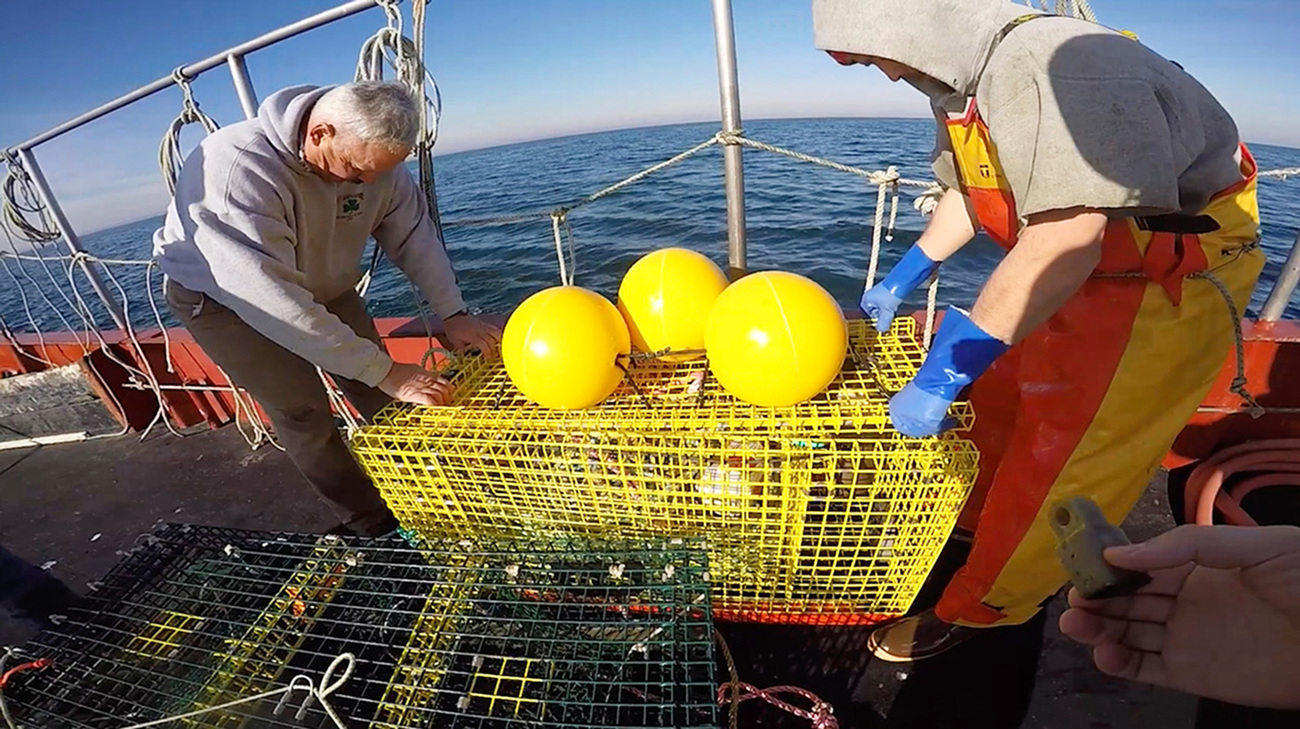Kathleen Collins
saving right whales with whale-safe lobster
saving right whales with whale-safe lobster

Next time you order lobster at a restaurant or buy it from a grocery store, consider whether what you’re purchasing is “whale-safe lobster.” Here’s why it matters:
North Atlantic right whales are barreling toward extinction, and one of the major threats they face is getting entangled in fishing gear (their other biggest threat being vessel strikes).
There’s a solution to preventing these deadly entanglements that promises to keep fishermen on the water and lobster on the menu—a technology known as “on-demand fishing gear.”
The adoption of on-demand fishing gear is not getting the attention it deserves. Its benefits are twofold: it reduces the risk of entanglement to the critically endangered North Atlantic right whale while also sustaining the livelihoods of lobster fishermen.
The question is, how can we support fishermen to adopt this new fishing gear and enter the marketplace with a brand new product—on-demand-caught lobster and crab?
an innovative solution to deadly entanglements
North Atlantic right whales must navigate many threats as they migrate along the east coast of the United States and Canada, including recreational boaters, industrial shipping zones, and vertical lines from fishing gear. These threats—which are exacerbated by shifting food sources and climate change—cause stress, injury, and can lead to death.
Fishing gear weighs whales down, stopping them from moving freely, feeding, or reproducing. The gear can also cut into their blubber, muscle, and even bones, and they slowly die of infection, exhaustion, or starvation.
Increased adoption of on-demand fishing gear can significantly reduce the threat of these deadly entanglements. By eliminating fixed vertical buoy ropes from the water column and replacing them with GPS locators and acoustically triggered lift devices, fishermen can locate and access traps along the ocean floor without posing a risk to right whales.
However, despite its promise, on-demand fishing gear is currently only deployed in relatively small-scale field trials and under special permits.
working with lobster fishermen
One of the leading barriers to wide-scale adoption of on-demand fishing gear is the cost to individual fishermen.
IFAW is working to change that by securing federal and state funding to offset the cost of gear for fishermen who want to try it. Headway is already being made, as recent funding allocated by Congress will help alleviate costs for acquisition, training, and research.
IFAW is a founding member of the gear library housed at NOAA’s Northeast Fisheries Science Center, a cache system of on-demand gear that is made available for fishermen to try without the cost of purchasing the gear outright. We have also supported early adopter fishermen by providing safety gear and accessories to participants of on-demand testing pilot projects to ensure they are able to fish safely.
the market for sustainable seafood
The next step to ensure a successful transition to on-demand fishing gear is exploring the marketplace for sustainable, on-demand-caught seafood. As a start, we recently partnered with FishWise, a sustainable seafood consultancy, to understand the needs of seafood purchasers and demonstrate the market viability of on-demand seafood. We found misinformation is still a problem, with many fishermen and seafood buyers still uninformed or misinformed about on-demand gear, the rules and requirements surrounding its use, and its success rates.
But the research also revealed that lobster buyers are interested in buying sustainable seafood when it is available for commercial sale. There also appears to be an opportunity for sustainable seafood as a premium product in the hospitality industry.
Presently, there is not enough whale-safe lobster to market aggressively to retailers or to consumers, but this is changing rapidly based on early-adopter fishermen’s ability to secure permits and use on-demand gear more widely. Interest is also growing from retailers and restauranteurs in featuring it in stores and on menus.
Continued outreach and engagement with the seafood industry is a key priority for IFAW, to help to harness market forces and ensure fishermen have a thriving marketplace for whale-safe lobster. We believe we can create a sustainable seafood product that appeals to conservation-minded lobster buyers. With on-demand fishing gear, we can forge a path forward for North Atlantic right whales while preserving fishermen’s heritage and livelihoods.
Related content
Our work can’t get done without you. Please give what you can to help animals thrive.